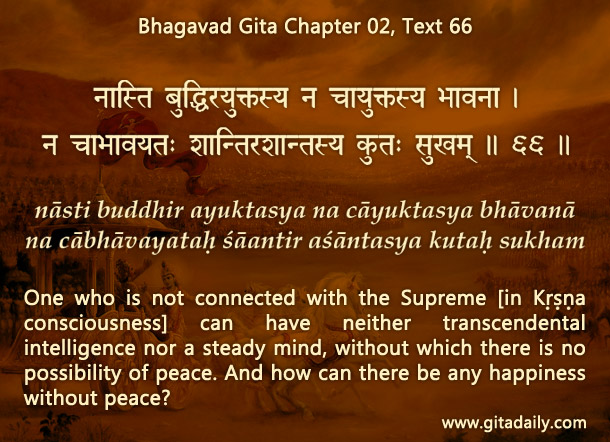Many people treat psychological techniques as a substitute for philosophical insights. If a technique calms their mind, which they believe is the purpose of psychology, they accept it without investigating that technique’s implications about what the mind is and who they are, which is the purview of philosophy.
Their apathy to philosophy reduces their life-story to a litany of trial-and-error experiments with feel-good pop-psychology techniques. Once the newness of such techniques fades, the mind stops finding them appealing, and the good feeling coming from them declines and disappears.
In contrast with such non-philosophical approaches, Gita wisdom presents its psychological techniques as a subset of its philosophical insights. It explains the mind’s nature within the context of its broader explanation of our identity and destiny: We are not our material bodies, but are souls, who are beloved parts of God. Being his parts, we need to harmonize with him. The Bhagavad-gita (02.66) states that those who live disconnected from him can’t have a peaceful mind.
To connect with God, the Gita offers the process of yoga, especially bhakti-yoga. For tapping bhakti’s potency, we need to practice it philosophically, not psychologically. That is, we need to resist the temptation to evaluate bhakti through pop-psychology’s criterion: “If it feels good, I will practice it; otherwise, I won’t.”
Philosophy explains that immediate feelings don’t always reflect consequential changes. Bhakti does make us feel good ultimately, for it connects us with the source of all good feeling, God. But to sustain that connection, we need to repeatedly redirect the mind from its worldly fascinations to God. The mind rabidly resents such disciplining, making us feel bad in the process. Nonetheless, despite the bad feeling, if we, by drawing insight from the Gita’s philosophy, persevere in bhakti, then everlasting good feeling awaits us.
Explanation of article:

Podcast:


Leave A Comment